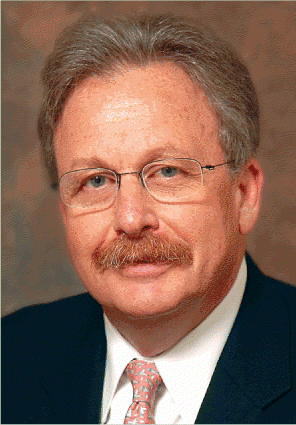PHOENIX-Mentors seem to be a dying breed, but they shouldn’t be. Indeed, the importance of mentors was stressed in the Triological Society’s Presidential Address by Myles L. Pensak, MD, at the recent Combined Otolaryngological Spring Meeting here.
Explore This Issue
July 2009Very often we have positions or people in positions of power and authority who are completely clueless about the role of mentors, and we have many of our younger colleagues and folks in mid-career who have absolutely no idea how to work as mentees, he said. And this decline in mentoring is someshat reflective of a bankruptcy in leadership in medicine.
Doctors do well in their profession both financially and in terms of having a good standard of living. There are few careers that are as rewarding.
But, citing Winston Churchill, he noted, it is more by what we give than what we get that really determines the measure of a life. Doctors need to think about what they can give back to society, in general. And part of that is encouraging a legacy of physicians who have learned not only good medicine, but a good ethic as well.
 Very often we have positions or people in positions of power and authority who are completely clueless about the role of mentors, and we have many of our younger colleagues and folks in mid-career who have absolutely no idea how to work as mentees.
Very often we have positions or people in positions of power and authority who are completely clueless about the role of mentors, and we have many of our younger colleagues and folks in mid-career who have absolutely no idea how to work as mentees.
-Myles L. Pensak, MD
Mentors are generally posited as models, counselors, advisors, and nurturers, both professionally and in their familial and social lives. It is recommended that the mentee seek out the mentor, but with the way medicine works these days, that can be emotionally difficult and pragmatically challenging.
Moreover, medicine has evolved (or devolved) into a culture that is predicated on a fairly mono-by-mono and macho phenomenon. The idea of acknowledging that you need support or guidance, that you are seeking advice, is often seen by our leaders as a point of weakness, and folks tend to avoid it, Dr. Pensak said. This is a mistake, because people can really learn from each other by having productive exchanges of information. No one person can know everything.
Why Be a Mentor?
A reason to be a mentor is to pass on knowledge and skills to the next generation. Not everything can be learned in the classroom, online, or from a textbook. There are many aspects to medicine that aren’t written down, or can best be learned by being there in person.
Besides, doctors who become mentors learn through the process too. One of the things mentorship does is check assumptions. It is amazing how myopic our views can be at times, and how narrow-minded we are, parochial and very catholic in our thought processes, often leading to rigidity and inflexibility. In any organization where you don’t have the ability to be flexible today, you’re dead in the water, Dr. Pensak said.

Right now there is a generation gap in terms of value systems, not just in medicine but in other professions too. The older generation was trained in an environment where young physicians practiced 90- to 100-hour workweeks. Younger physicians are pushing for change so they can spend more time with family. Understanding each other’s values is part of the mentoring experience.
The mentor-mentee relationship can also contribute to improved problem solving, with different minds approaching issues from different perspectives.
The Making of a Mentor
Who makes a good mentor? The bottom line is being keen to be a mentor, and making yourself accessible to mentees.
There are many individuals who are put into mentor positions who then make themselves inaccessible. Or while they are while they are with mentees, they take phone calls. They rudely sit there with BlackBerrys and read papers. This disinterest is probably the single prime disqualifier for being a mentor, Dr. Pensak said. Mentors need to be active listeners, be trustworthy, and be able to hold a confidence.
However, he added, active listening is often a problem for physicians in general. Surveys frequently show that patients feel that doctors interrupt too often, don’t listen, and don’t get to the real issues at hand. Sympathy and empathy are important features for a mentor, but knowing when tough love is needed is important too.
Mentors can’t always expect mentees to be capable of exactly the same things they are. One needs to recognize mentees’ strengths and challenge them to optimize their particular abilities.
Dr. Pensak added that there are two types of mentors. One is the induction mentor-the person who is there when a resident or young partner first enters a program or practice. Often there is an assumption that because these young physicians are intelligent, articulate, bright, and engaged, they can handle everything on their own.
Very often some of the brightest and some of the best, without any guidance, are going to be challenged and have difficulties. As an induction mentor, you’re the one who tells the person on the team all the things that aren’t written down. You talk about culture, talk about conduct, and introduce them to the climate of the practice environment, he said.
The second type of mentoring is the mentoring of colleagues in mid-career. Otolaryngologists who have been around for a while may want to learn a specific new technique or skill from someone who is known as an expert in that area. What better way than to learns the ins and outs from someone who has experience with it?
Mentoring is not remedial action, Dr. Pensak said.
Generally, good mentors not only help develop career steps for people entering the field, but they also help individuals optimize their emotional, intellectual, and professional goals within a framework defined by fiscal, service, and political realities.
©2009 The Triological Society
Leave a Reply